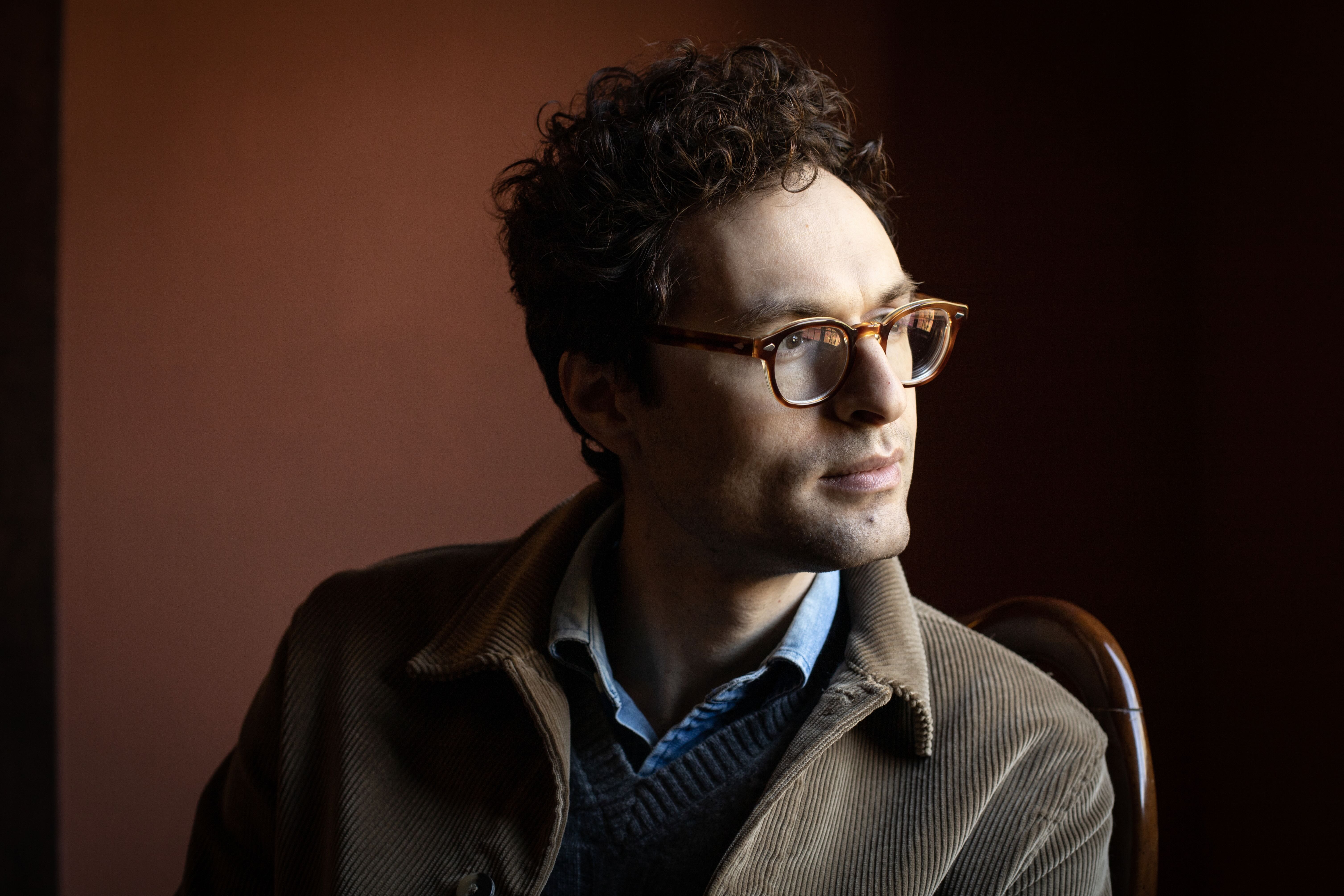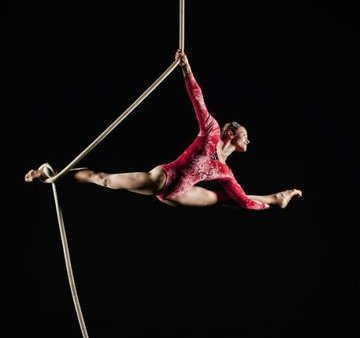Timo Andres. Photo: Michael Wilson
Tchaikovsky’s 4th
Ruth Reinhardt, conductor
Timo Andres, piano
A review by Annette Skaggs
Entire contents are copyright © 2022 by Annette Skaggs. All rights reserved.
What an exciting night to be treated to the appearance of not one, but two guest artists. While we certainly enjoy seeing Teddy Abrams on the podium, another artist’s perspective can be a welcoming addition to the creativity and breadth of musicality for which the Louisville Orchestra is renowned.
Over the weekend our orchestra presented works by prominent Russian composers Mussorgsky and Tchaikovsky and inserted native Londoner Thomas Adѐs as a counterpoint.
Modest Mussorgsky’s Night on Bald Mountain, arranged by Rimsky-Korsakov, has become synonymous with ghosts and goblins and all things Halloween. That could be partially attributed to Disney’s use of the piece in its timeless Fantasia, or it very well could be because the orchestration was inspired by a story by Russian author Nikolai Gogol, which included witches and evil goings-on. With its sharp use of strings that elicit the sound of shrieking ravens and crows and winds that emulate the whoosh of volatile wind, the piece is a masterpiece of imagination.
The feature of the evening was of course the masterful Symphony No. 4 in F minor, Op. 36 by Pyotr Tchaikovsky. Set in four movements, Tchaikovsky’s much-lauded work reflected his life, having just come out of a tumultuous marriage. Dedicated to his patroness Nadezhda von Meck, the symphonic poem is rare in that upon its commission Tchaikovsky was asked to write a program that explained the symphony.
Andante sostenuto, the first movement, is strong. It begins with a feeling in your chest blast of short forte notes in the winds and brass and then quickly mellows into the melody in the woodwinds that brings a center to the orchestration. Within the notation there is a succession of gorgeous falling threes in the woods and winds that play tag with one another that adds a bit of lilt to the movement.
In the second movement, Andantino in modo di canzona, Tchaikovsky takes a more solemn sound, using an oboe to express his melancholy. He then incorporates flutes with a somber cello undertone that further demonstrates his feeling of somberness.
It isn’t often that strings employ the use of pizzicato, but it is even rarer when they employ the musical device within an entire movement. But such is the case in the third movement, Scherzo: Pizzicato ostinato. This technique adds a unique quality of sound that can alter the whole scope of an arrangement. Using only woodwinds and strings, the scant use of instruments and enticing pizzicato help to punctuate the movement.
By the time we reach the last movement, Finale: Allegro con fuoco, Tchaikovsky is in a great mood, perhaps even playful. Reintroducing the whole of the percussion section, the cymbals get more explosive and the tympani get more bombastic. This is a celebration of life. Bright and brilliant horns return to the first notes of the beginning of the piece and all the instruments are alight and excited to be there.
As part of the history of the Louisville Orchestra, they have sought out and programmed works by living composers for their concerts. This past weekend we heard In Seven Days, Op. 25, by Thomas Adѐs. While his Powder Her Face and The Exterminating Angel are being brought into the operatic repertoire (which I have not had a chance to hear as of yet), his piano works are certainly making their mark as well.
With inspiration from the Book of Genesis, this piano concerto demands the attention of a well-versed and flexible pianist. Fortunately, Timo Andres answers that call. Andres’ musical influence has been worldly, having collaborated with the Lincoln Center as well as artists like Phillip Glass.
Seven movements that reflect the seven days of creation are hectic, reflective, and sometimes may elicit a raise of the eyebrow to ingest the musical intent. Played progressively with no stops, the movements blend into each other, making it difficult to determine when one ends and another begins, but when you listen closely it becomes easier to figure out, sometimes.
Within these movements there were a multitude of musical genius: disjointed strings and winds frame the second movement, Separation of the Waters into Sea and Sky. Flourishes of brass that then introduce the piano, showing a deft left hand that doubles as percussion. It was perhaps in the fourth movement, Stars-Sun-Moon, that in the beginning the cellos were playing so quietly that if you were not paying attention, you would have lost their noise. It was eloquent in its delivery.
The layering of instruments, including the piano, was masterful in some respects, but perplexing at times. Often that instrumentation seemed more of a mish-mash of notation and loss of connectivity. But in retrospect that is how it was supposed to be written. While there isn’t really a melody or theme that you’ll walk out of the theater humming, the piece sticks with you for a while. Personally, I intend to listen to it again so that I may seek out other nuances.
Under the baton of guest conductor Ruth Reinhardt, who is a rising star in the musical world, our Louisville Orchestra once again proved to us of their musical prowess and love of performing.
Bravi Tutti!!
Tchaikovsky’s 4th
November 19, 2022
Louisville Orchestra
Kentucky Performing Arts
501 West Main Street
Louisville, KY 40202
Louisvilleorchestra.org
Annette Skaggs is heavily involved as an Arts Advocate here in Louisville. She is a freelance professional opera singer who has performed throughout Europe and in St. Louis, Cincinnati, Boulder, Little Rock, Peoria, Chicago, New York and of course Louisville. Aside from her singing career, she has been a production assistant for Kentucky Opera, New York City Opera, and Northwestern University. Her knowledge and expertise have developed over the course of 25+ years’ experience in the classical arts.





